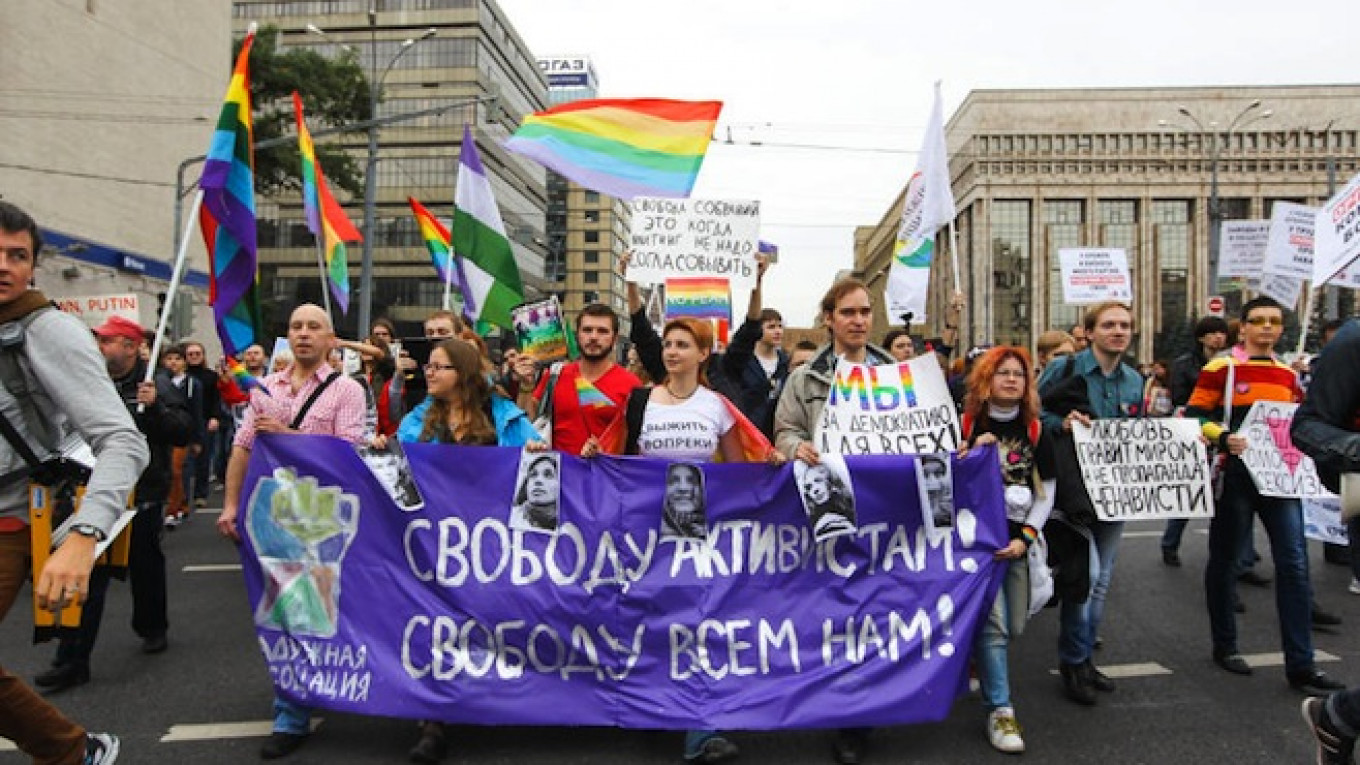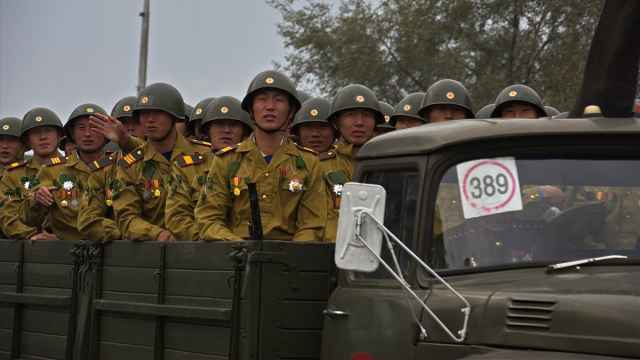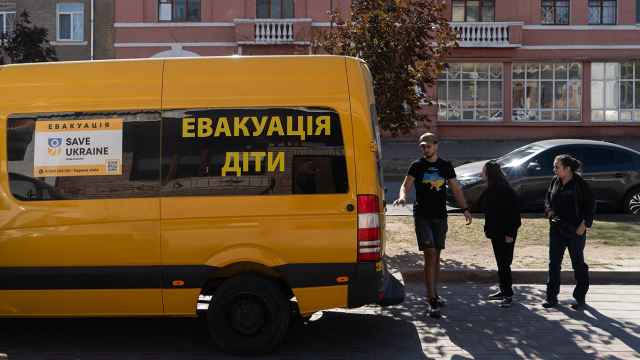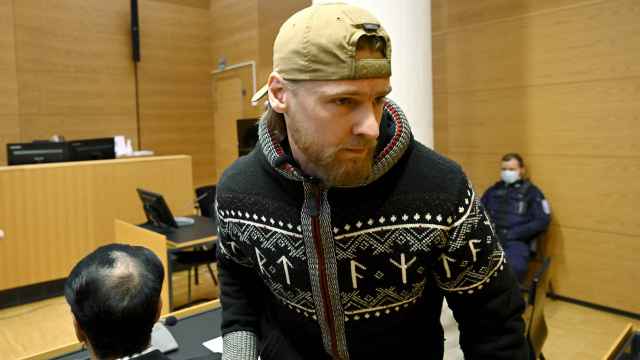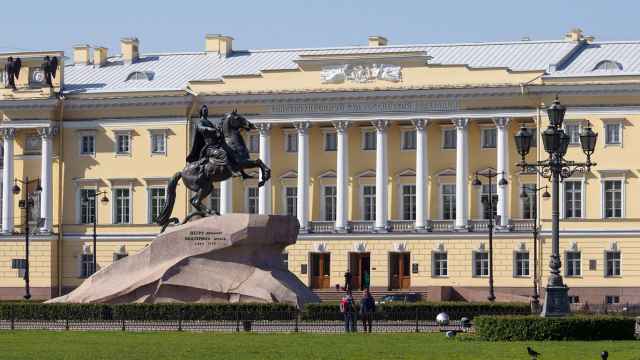Russian drag artist Yulianna Prosvirnina was revelling in the success of the buzzing gay and lesbian party she had organized in Moscow when a hooded mob burst into the venue.
"They stopped the party and shouted 'Who wants to be first?'," the 26-year-old lesbian performer said.
"Then tables started flying, glasses were breaking everywhere and girls were kicked in the stomach. Many people hid and most were so scared, too scared to stand together and defend one another," she said.
Prosvirnina threw the ill-fated party, which saw the club trashed and four people hospitalized, just months after a law banning homosexual propaganda was passed in June 2013.
Activists say it has fueled anti-gay abuse, discrimination and violence, spawned a "chilling effect," and victimized young lesbian, gay, bisexual and transgender, or LGBT, people and deterred them from coming out and seeking support.
The Russian legislation banned the spreading of "propaganda for non-traditional sexual relations" to minors and introduced fines for individuals and organizations that breach the law, which critics describe as arbitrary and hard to implement.
The law is seen by many as one in a series of moves by President Vladimir Putin to crack down on dissent, smother civil society, and draw closer to the Russian Orthodox Church, which has spoken out against homosexuality and is one of the most influential institutions in the country.
Punishable by jail in the Soviet Union, homosexuality was decriminalized in 1993 yet much of the LGBT community remains underground and prejudice runs deep.
The law has only been enforced in a handful of cases, and Yelena Klimova, the founder of one of Russia's only online communities for LGBT youths, Deti-404, where users share stories of attacks and humiliation, was the latest person to be convicted in July and was fined 50,000 rubles ($736).
"We [LGBT people] are treated as subhuman, with no civil or human rights, we are social non-entities, and we are even considered diseased and dangerous to society," said Prosvirnina, a self-titled drag king who goes by the stage name Iven Batler.
Stoking Violence
Tanya Cooper, Russia researcher at Human Rights Watch, said the gay propaganda law was part of a wider crackdown on civil society and anybody who challenged traditional Russian values.
Since Putin returned to the presidency in May 2012, Russia has adopted laws tightening controls on non-governmental organizations funded from abroad and barring those deemed to pose a threat to its constitutional order, defense or security.
"Activists see the propaganda law as part of a broader crackdown to create a chilling effect and clamp down on those who speak out and have opposing opinions," Cooper said.
"But LGBT people see the law as an assault on their identity and community, driven by violence and state-sponsored homophobia flowing from television screens, radio stations, newspapers and even celebrities," she said.
A vigilante group called Occupy Paedophilia has gained infamy for using Russian social media to connect with gay men and lure them into traps, attacking and humiliating them on camera then posting the videos online, where they are shared and "liked."
In July, a video of two men being harassed, abused and threatened for walking hand-in-hand in Moscow went viral.
Another radical Orthodox group, "God's Will", seeks to identify pro-LGBT professionals, expose them and campaign for their dismissal.
Cooper fears the law has not only fueled but also legitimized anti-LGBT sentiment and violence among the public.
She said victims who muster the courage to report such incidents to the police, and reveal their sexuality, are routinely dismissed and even mocked by the authorities who refuse to take violence against the LGBT community seriously.
"Before the gay propaganda law, LGBT people would not have been openly attacked in broad daylight ... but now they don't feel safe on the streets or even talking to people online."
"The government has portrayed the LGBT community as a hazard to children while groups like Occupy Paedophilia conflate homosexuality with paedophilia ... what kind of message does this send out to young LGBT people across Russia?" she said.
Youths Bear Brunt
Activists fear the law has left young LGBT people feeling isolated and neglected in a country with a child and teenage suicide rate three times that of the global average, according to a 2013 report by Russia's state consumer rights agency.
For LGBT youths living with HIV, the stigma surrounding their sexuality and illness means they face double discrimination and even greater anxiety, said Yevgeny Pisemsky, founder of Phoenix Plus, a Russian NGO for HIV-positive gay men.
He recalled the account of a gay 17-year-old Russian boy whose mother said she should "have got rid of him" before he was born after he was diagnozed with HIV.
"He saw a great counsellor for two months, who helped him and his mother to understand that life was not over ... but as a minor today, he would not be able to receive that support under the gay propaganda law," he said.
Although the law has led to a spike in violence and stifled much of Russia's LGBT community, it has also brought together activists, campaigners and rights groups, according to Anastasia Smirnova, policy officer at LGBT network ILGA-Europe.
"There is more solidarity among civil society now than ever before ... and LGBT rights are at the forefront of the human rights agenda. Who knows what change this might bring about?" she said.
A Message from The Moscow Times:
Dear readers,
We are facing unprecedented challenges. Russia's Prosecutor General's Office has designated The Moscow Times as an "undesirable" organization, criminalizing our work and putting our staff at risk of prosecution. This follows our earlier unjust labeling as a "foreign agent."
These actions are direct attempts to silence independent journalism in Russia. The authorities claim our work "discredits the decisions of the Russian leadership." We see things differently: we strive to provide accurate, unbiased reporting on Russia.
We, the journalists of The Moscow Times, refuse to be silenced. But to continue our work, we need your help.
Your support, no matter how small, makes a world of difference. If you can, please support us monthly starting from just $2. It's quick to set up, and every contribution makes a significant impact.
By supporting The Moscow Times, you're defending open, independent journalism in the face of repression. Thank you for standing with us.
Remind me later.


